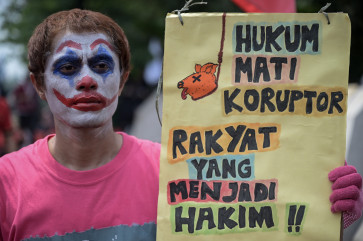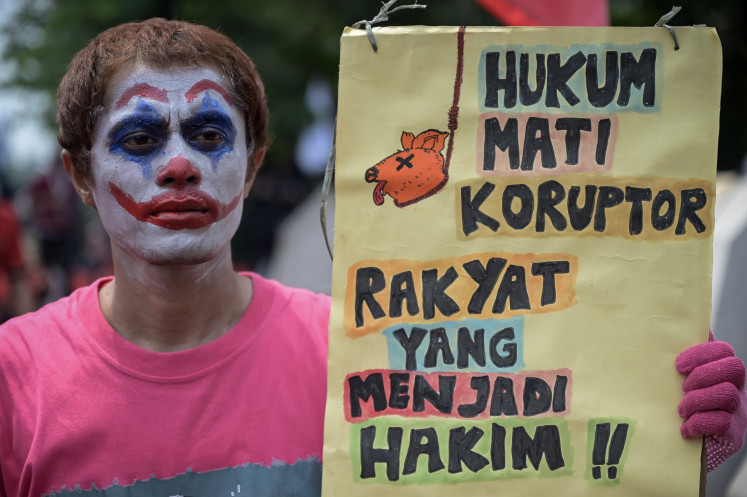Popular Reads
Top Results
Can't find what you're looking for?
View all search resultsPopular Reads
Top Results
Can't find what you're looking for?
View all search resultsFighting misconceptions, local spa industry seeks workers
Despite an increasing demand for skilled Indonesian therapists, the spa industry must fight public misconceptions to attract a greater number of competent people to work in the industry at home and abroad
Change text size
Gift Premium Articles
to Anyone
D
espite an increasing demand for skilled Indonesian therapists, the spa industry must fight public misconceptions to attract a greater number of competent people to work in the industry at home and abroad.
Some people still confuse local spas that offer massages for seedy massage parlors, which means that families prohibit children from working in the industry.
Whereas the spa industry, which concerns health and well being, has been blooming in Indonesia with Bali becoming the host of an international spa summit last month.
Indria Prastiti, academic manager of the Mustika Ratu training and education institution, said that the institution had seen a rising demand for spa therapists in the domestic and international market.
She said that Mustika Ratu had sent therapists to Malaysia, Singapore, Brunei Darussalam, Japan, China, Canada, Czech Republic and several Middle East countries.
“We can only meet 50 percent of the market demand. The number has been increasing. In the past, the spa industry had a two or three year peak cycle, but now the figure keeps going up,” she said.
She said Indonesia had the potential to fill the world’s demand for spa therapists as many consumers preferred to have Indonesian therapists, who were said to be more
attentive.
“Each spa has a different concept. For example, if it is an Indian spa, it will use therapists from India to lure consumers. But we have yet to see it as competition because Indonesian spa therapists remain a favorite, both in the domestic and international market,” she said.
She said that the big hurdle in providing skilled workers to the spa industry was families who saw associated spas with negative activity.
“We hope the government gives a clear definition about the spa industry and closes those entertainment spots claiming to be spas. Spas are about wellness and health, not entertainment,” she said.
With increasing demand for spa therapists, the industry has the potential to create jobs — a potential spotted by the National Education Ministry, which has a scholarship program for dropout students to receive spa training.
Indria said the ministry’s program usually involved 50 students. However, she added, this year the number would be 100 students.
She said that besides teaching body massage and treatments the training also covered anatomy,
physiology and first aid to help consumers.
“For example, a consumer who takes a salt bath may not know that she is allergic to natrium. If anything happens during the session, the therapist can give first aid to the consumer,” she said.
Wartanto, from the ministry’s directorate general of non-formal and informal education, said the program was part of the ministry’s efforts to help dropouts get back on their feet.
“We give hundreds of training institutions aid to train and place the dropout students. The spa sector is just one of the many sectors we have interest in,” he said.










